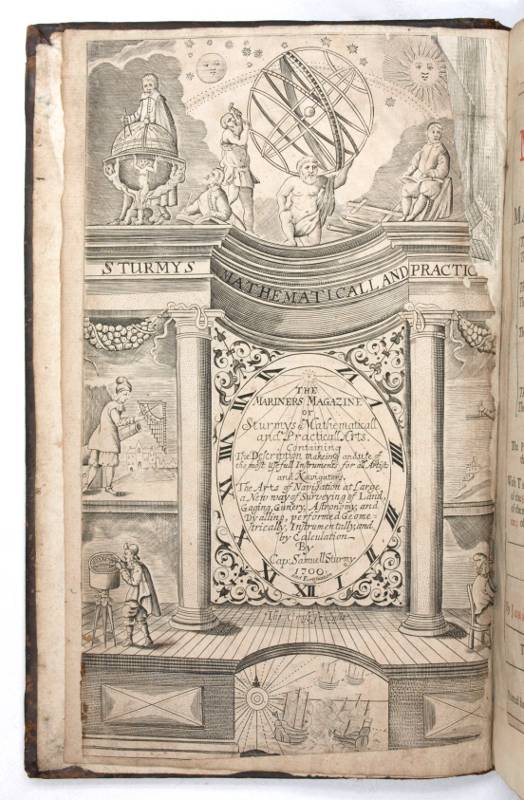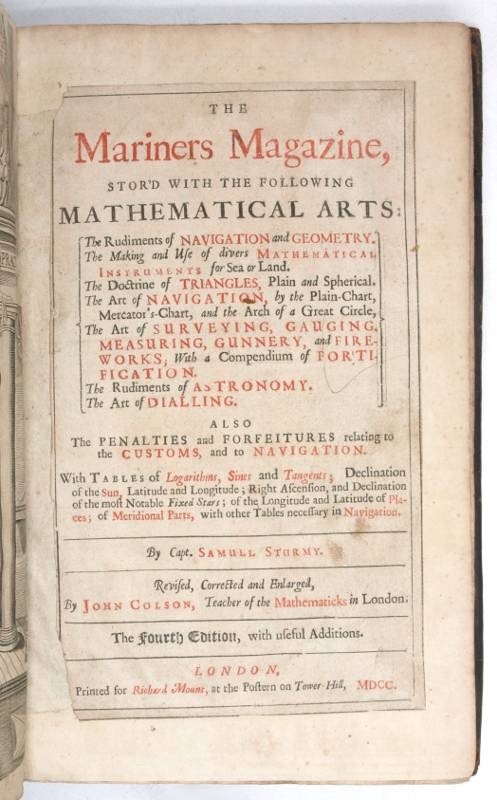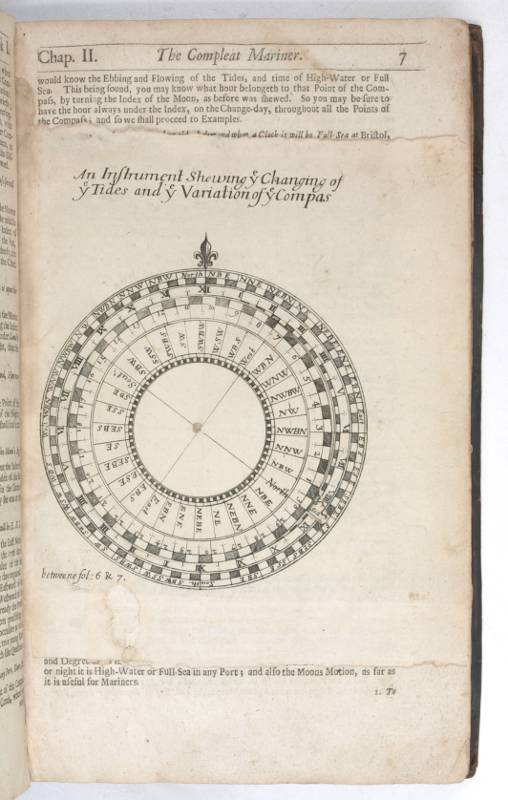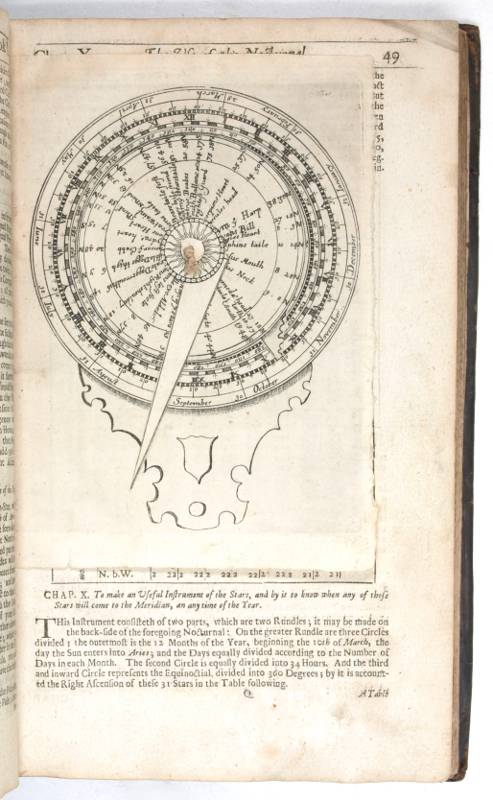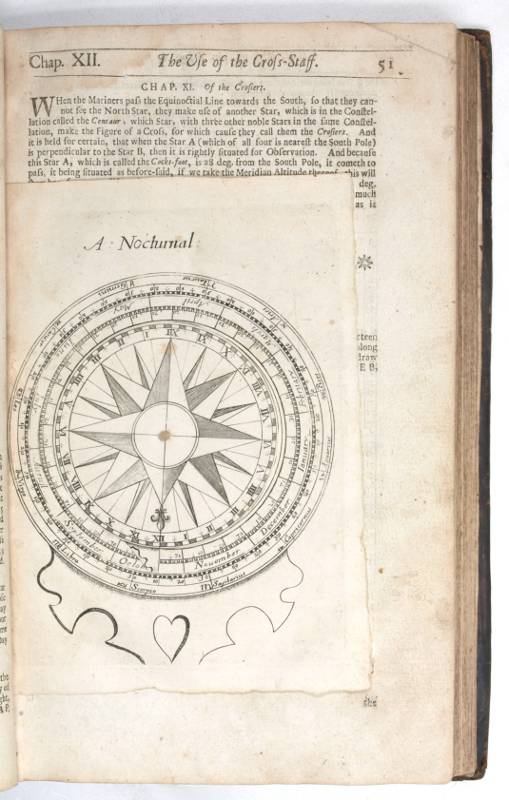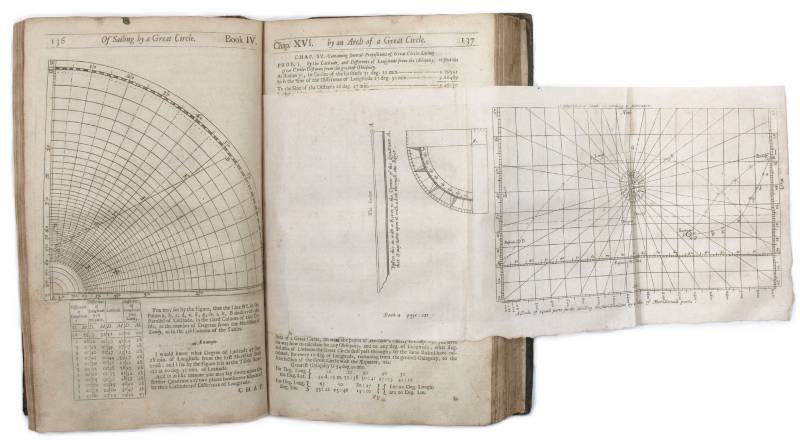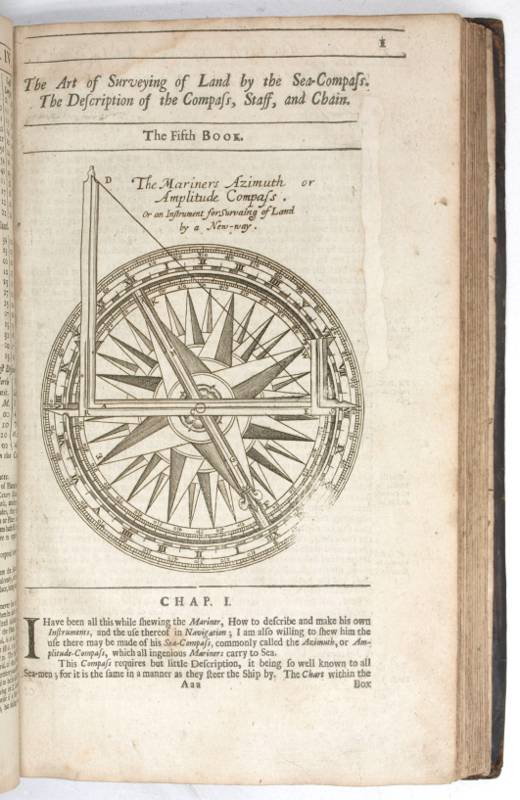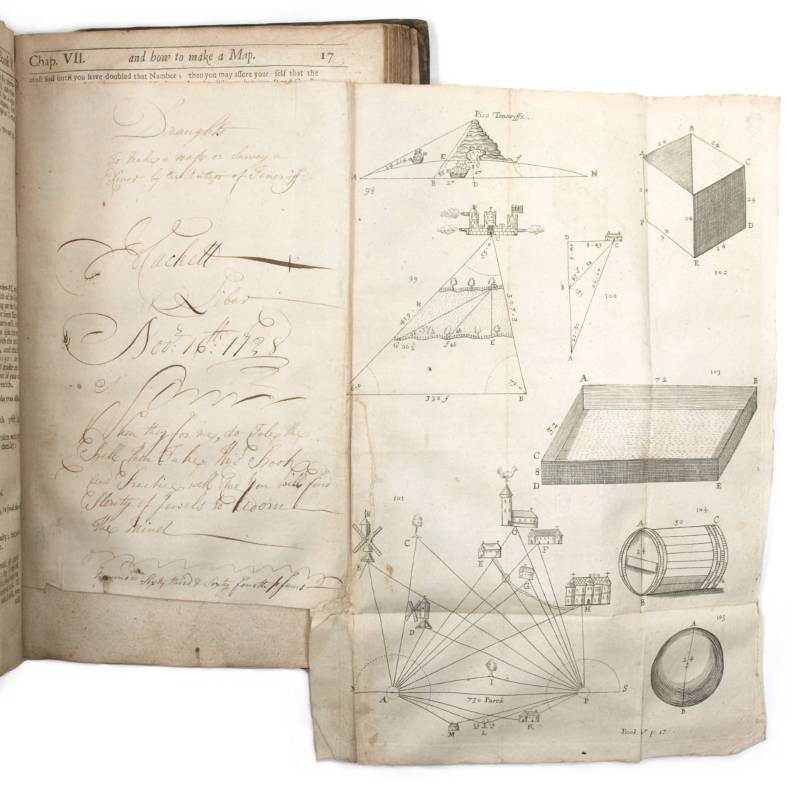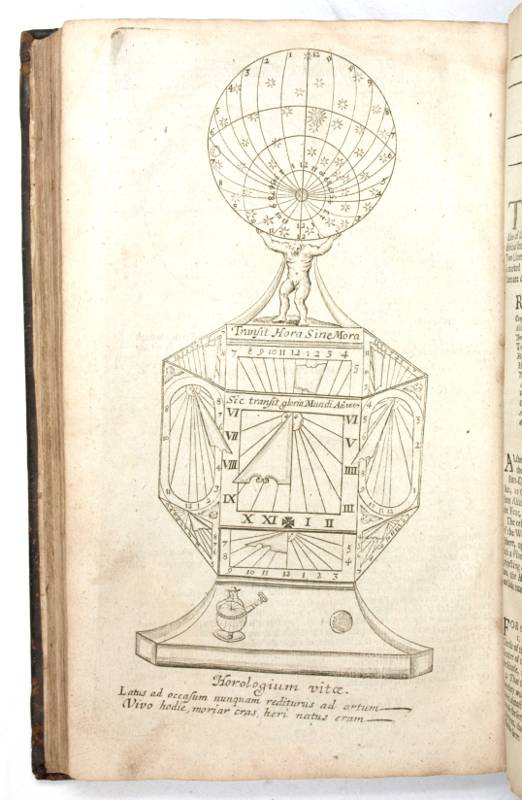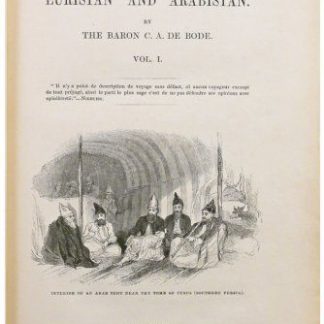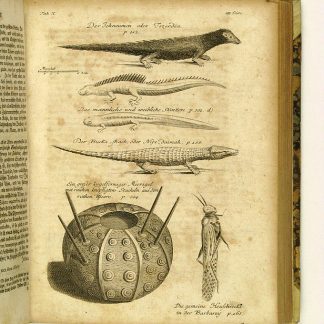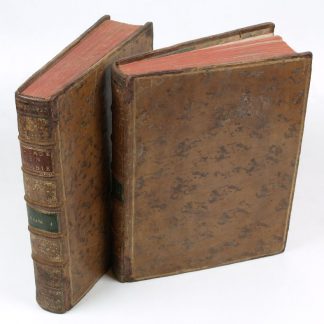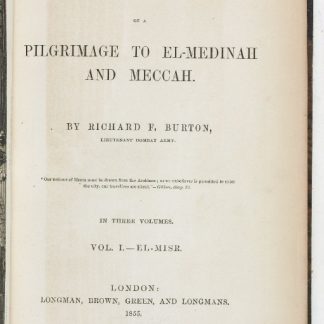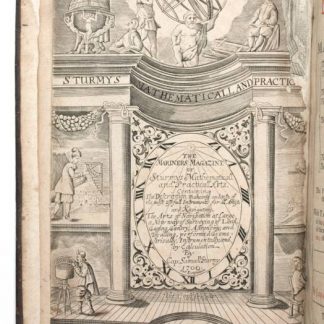The Mariners Magazine. [...] Revised, corrected and enlarged by John Colson.
Folio. (10), 148, 116, (48) pp. (pages 109, 100, 111, and 112 bound out of order). With plates, tables and 3 volvelles. 18th century panelled calf with the binding dated "1734" and with a newer, and heavily buttressed, spine added.
€ 8,500.00
A very good copy of this important, influential and rare-to-the-market nautical classic, being the fourth edition with "Useful Additions".
Samuel Sturmy states that he was apprenticed to a Bristol sailmaker and thereafter commanded ships sailing out of Bristol, primarily to Virginia and to the West Indies. His experiences formed the core of the work herein described, a work produced by him to provide his three brothers, his sons, and other young seamen with all of the information they would need - even if their own mathematical abilities were restricted to ordinary arithmetic. Sturmy wrote in a lively fashion, and in the sections pertaining to seamanship the usual commands and responses were set forth as a dialogue between the ship's captain and the crew, parts of which were used verbatim by Jonathan Swift in "Gulliver's Travels". It is from Sturmy's book that Dampier remembered the recipe ("receipt") for gunpowder. Sturmy's work also contains what may be one of the earliest complete explanations of the construction of a polar gnomonic chart, presenting a detailed example of a great circle route from the Lizard to the Bermudas. The Oxford Reference states: "The gnomonic chart became popular with the publication by Hugh Godfray in 1858 of two polar gnomonic charts covering the greater part of the world, one for the northern and the other for the southern hemisphere. Although it was generally believed that Godfray was the original inventor of this method of great circle sailing, it is interesting to note that a complete explanation of the construction of a polar gnomonic chart, with a detailed example of a great circle route from the Lizard to the Bermudas, appeared in Samuel Sturmey's 'Mariners' Mirror', of 1669." - A superior copy of a rare and highly notable book: an early classic of navigation, of which few copies in any edition have come to auction over the last several decades and which constitutes a critical component of any any nautical library.

